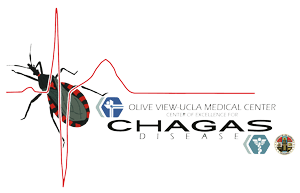
Protocols for Action
HEART DISEASE
Approximately 20% to 30% of patients with T. cruzi infection will develop heart problems during their lifetime. Heart disease develops progressively about 20 to 30 years after infection as part of the natural history of Chagas disease. However, 5% to 10% of patients with acute disease develop myocarditis, which progresses rapidly to a serious form of cardiomyopathy. More rarely, patients with chronic disease and mild heart involvement can experience sudden reactivation, with intense parasitemia and acute heart failure. The pathogenesis of heart problems in Chagas disease is still under debate, although current evidence suggests that it involves myocardial damage caused directly by the parasite and an associated autoimmune phenomenon. Other pathogenic mechanisms such as microvascular alterations and autonomic denervation have also been implicated.
DIGESTIVE DISORDERS
In the years following infection, approximately 15% to 20% of people with T. cruzi infection develop complications secondary to digestive system damage. The damage is due to an alteration in the autonomic nervous system that causes impaired peristaltic activity. While any portion of the digestive tract can be affected, the oesophagus and colon are most frequently involved. The symptoms of digestive Chagas disease are non-specific, and a diagnosis can therefore be missed. It is crucial that health professionals dealing with patients at risk of Chagas disease are familiar with the symptoms and order relevant tests to ensure early diagnosis and optimal care.
IMMUNODEPRESSION
Immunodepression, which is an increasingly common clinical condition worldwide, can modify the natural course of T. cruzi infection and cause reactivation of Chagas disease. T. cruzi infection is an opportunistic parasitic infection that is considered indicative of AIDS. The clinical manifestations of reactivation are more severe than those seen in acute Chagas disease. Antiparasitic treatment with benznidazole and/or nifurtimox is recommended in such cases and has also proven to be highly effective at preventing reactivation. To minimize risk, patients should be started on treatment before their immune systems become weakened. International guidelines based on expert opinion have helped to standardize the management of Chagas disease in immunocompromised patients.
PREGNANCY
Diagnosis of T. cruzi infection (2 positive serologic tests) during pregnancy has important individual and public health consequences. The goal is to treat mothers with confirmed infection before the onset of heart and digestive complications and to screen newborn infants and siblings to establish a firm diagnosis and initiate prompt treatment. Both benznidazole and/or nifurtimox are highly effective in children. Systematic screening of at-risk populations also enables the creation of clinical and demographic records that can provide information on the true burden of Chagas disease and the impact of control programmes.
Protocol for screening and diagnosing Chagas disease in pregnant Latin American women and their babies (document in Spanish).
TRANSPLANTS
Increasing migration from Chagas disease–endemic areas has increased the potential number of T. cruzi–infected organ and tissue donors worldwide. Additionally, patients with advanced Chagas disease may need to undergo organ (primarily heart) transplant. Protocols for the management of organ and tissue donors and recipients with T. cruzi infection and for recipients receiving organs from potentially infected patients are needed. The document below describes a series of action criteria for protecting against the transmission of Chagas disease through the donation of organs, tissues, or hematopoietic stem cells.
LABORATORY ACCIDENTS
While the risk of T. cruzi infection due to a laboratory accident is less than 1%, Chagas disease can occasionally be acquired through this route. We recommend downloading the following recommendations to protect against T. cruzi infection in the laboratory (document in Spanish).

CENTER OF EXCELLENCE FOR CHAGAS DISEASE
FOLLOW US